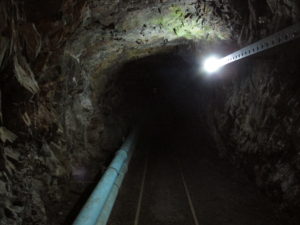American philosopher Alfred North Whitehead writes in Modes of Thought: “If you like to phrase it so, philosophy is mystical. For mysticism is direct insight into depths as yet unspoken” (MT, 1938, 237). Unlike religious mystics who look to the upper regions of the “unspoken”, philosophers are tasked with going into the deep. As lovers of the whole, philosophy seems to pursue an impossible task of translating the unsaid into the said. Plato begins his timeless dialogue The Republic with having Socrates say “I went down yesterday to the Piraeus” for a reason! Philosophy is a kind of hunt by human thought for what the oil drillers call “black gold.” Philosophers assume a coordinate whole of darkness, similar to Plato’s cave that will only be revealed in slits or light that illuminates particular spots. The success of the results will always be partial. But to get just a piece of something is to actually get everything, in a certain sense. That is what the Modern Age’s opening up of those monstrous and artificial hidden gems is all about!
It is no secret that philosophers have dirty minds. No, I’m not talking about the porn industry or another high-profile professor being accused of sexual harassment. I’m rather considering the experience of coal miners, who know how harsh and cruel the inner earth can be, how seemingly distant going inside the earth can feel. Like those who venture off into the mineshafts, philosophers too act as cognitive miners who tunnel through concepts and chisel away at principles to that rational inner core. As cognitive miners, philosophers deal in conceptual and worldview pollutants that demand careful training, protocols, and protective gear for getting at thoughts from below. Not to make light of the real risks that coal miners constantly face, philosophers can get trapped and stand in need of heroic rescue efforts. Airflow circulation can be cut off while entrenched below. We certainly know there are fatalities that come with the job, but the safety numbers fair way better today compared with the past. Cognitive unearthing entails great risk and danger–one must transport those so-called “dirty” deposits into plugs for higher energies. The fusions and explosions in the mining of geo-mental metallurgy can become just as calamitous for our intellectual ecologies, as can disasters involving hydroelectric and nuclear power sources. Soot-covered, wearing a neuro-protective hardhat and methodological utility-belt, philosophers clog along in the damp trenches of thought.
When Caroline Schlegel wrote on October 14, 1798 that her younger future husband Schelling “is a person to break through walls. He is a real fundamental nature. Considered as a mineral, he is granite”; or when Nietzsche wrote in 1888, “I am not a man, I am dynamite”–such observations pay witness to how philosophy can become a kind of power plant or conceptual generator of ideas. Philosophers have viewed themselves more so as climbers and hikers historically. But our age has created the expectation that one can call out for delivery—I no longer need to go to the thoughts because the thoughts will come to me—we are looking for our own breakthroughs or channels that will allow us to elicit the outside world from the inside! To be modern is to live in the time of the monstrous or under the spell of ever-growing dependency on human-driven natural energy confiscations. We will only continue to tunnel and blast our way into these artificial mysteries. The more we desire to advance technologically and artificially we will ironically have to go deeper into the depths of the cave. Philosophy descends on the unconcealed and aims to bring it to the surface or into the light. Such extraction and exploitation cannot happen without having one eye on entry points and another on points of exit. Under such unsanitary and dangerous conditions that heighten the occurrence of emergencies, thinking becomes more or less a series of improvisations. Philosophical endeavors run on their own kinds of transit systems—thoughts will arrive or depart and we know not where they will come from or go! The energies of kinetic cognition are the riches that philosophers are looking to strike in order to equip civilizations with the ability to produce and consume in more intense ways.
Peter Sloterdijk argues, since humans were never there in the “beginning” (whatever you take that to be) we are the animal for whom the situation has to be explained–we always arrive too late on the scene and need to be informed about what came before. In other words, it is quite natural for the greeting “what’s up?” to replace the more modest “hello.” Knowledge and distance, therefore, are synonymous or practically the same thing. Journeymen are scholars in a very concrete sense, responsible for enacting the first networking connection portals on the high seas. Now the cables are ran under the seas in order to penetrate the capacity for higher speeds and more data that can be efficiently communicated. In a certain sense, to unlock the mysteries of experience is to go underneath or down below and lay access and extract those resources fit for energy transformation, that may be brought to bear to provide us with the capacity for our own consumption. Such is the process by which implicit or latent relations are brought to explicit realization. The philosopher and miner share together in that uncanny knowledge that it is in the ground that we actually penetrate to an abyss, and vice versa, that same abyss yields a grounding or manifold power source used to secure further progress and development of life.


